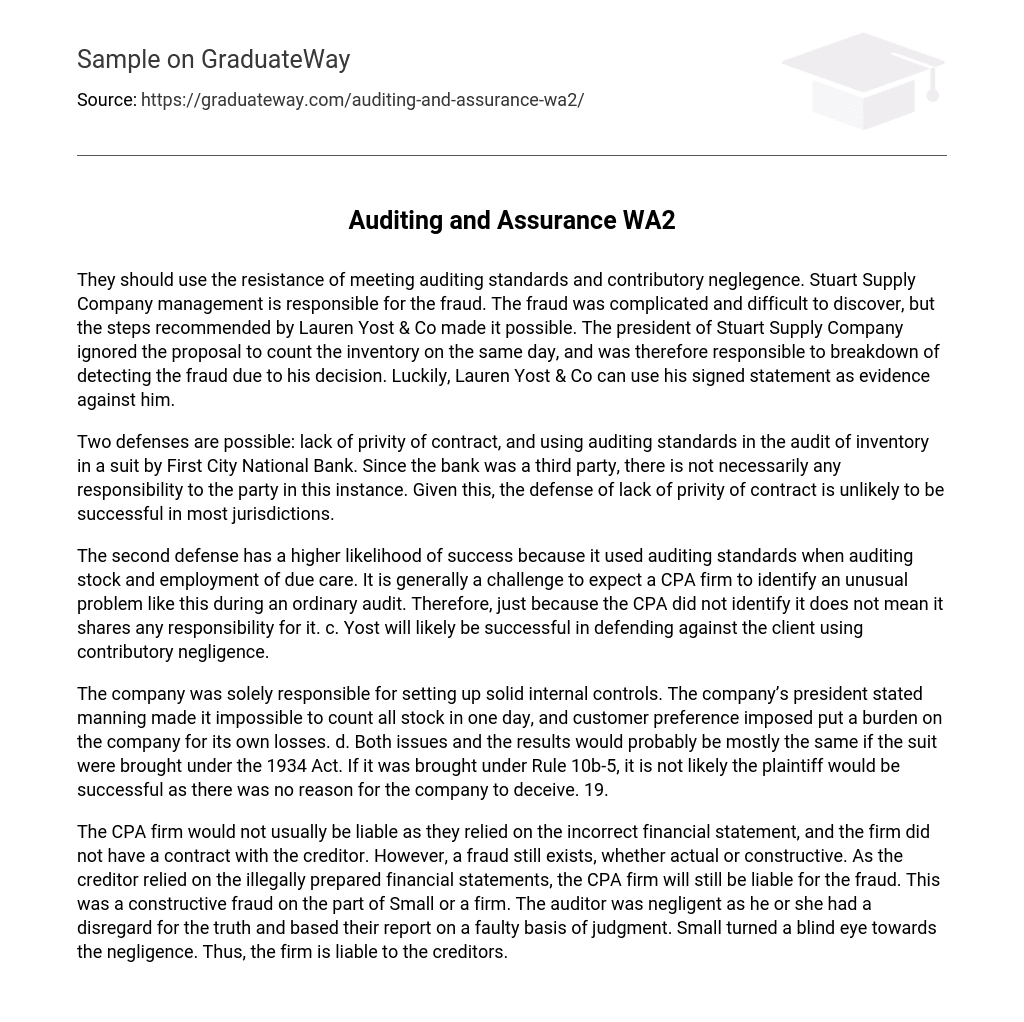They should use the resistance of meeting auditing standards and contributory neglegence. Stuart Supply Company management is responsible for the fraud. The fraud was complicated and difficult to discover, but the steps recommended by Lauren Yost & Co made it possible. The president of Stuart Supply Company ignored the proposal to count the inventory on the same day, and was therefore responsible to breakdown of detecting the fraud due to his decision. Luckily, Lauren Yost & Co can use his signed statement as evidence against him.
Two defenses are possible: lack of privity of contract, and using auditing standards in the audit of inventory in a suit by First City National Bank. Since the bank was a third party, there is not necessarily any responsibility to the party in this instance. Given this, the defense of lack of privity of contract is unlikely to be successful in most jurisdictions.
The second defense has a higher likelihood of success because it used auditing standards when auditing stock and employment of due care. It is generally a challenge to expect a CPA firm to identify an unusual problem like this during an ordinary audit. Therefore, just because the CPA did not identify it does not mean it shares any responsibility for it. c. Yost will likely be successful in defending against the client using contributory negligence.
The company was solely responsible for setting up solid internal controls. The company’s president stated manning made it impossible to count all stock in one day, and customer preference imposed put a burden on the company for its own losses. d. Both issues and the results would probably be mostly the same if the suit were brought under the 1934 Act. If it was brought under Rule 10b-5, it is not likely the plaintiff would be successful as there was no reason for the company to deceive. 19.
The CPA firm would not usually be liable as they relied on the incorrect financial statement, and the firm did not have a contract with the creditor. However, a fraud still exists, whether actual or constructive. As the creditor relied on the illegally prepared financial statements, the CPA firm will still be liable for the fraud. This was a constructive fraud on the part of Small or a firm. The auditor was negligent as he or she had a disregard for the truth and based their report on a faulty basis of judgment. Small turned a blind eye towards the negligence. Thus, the firm is liable to the creditors.





